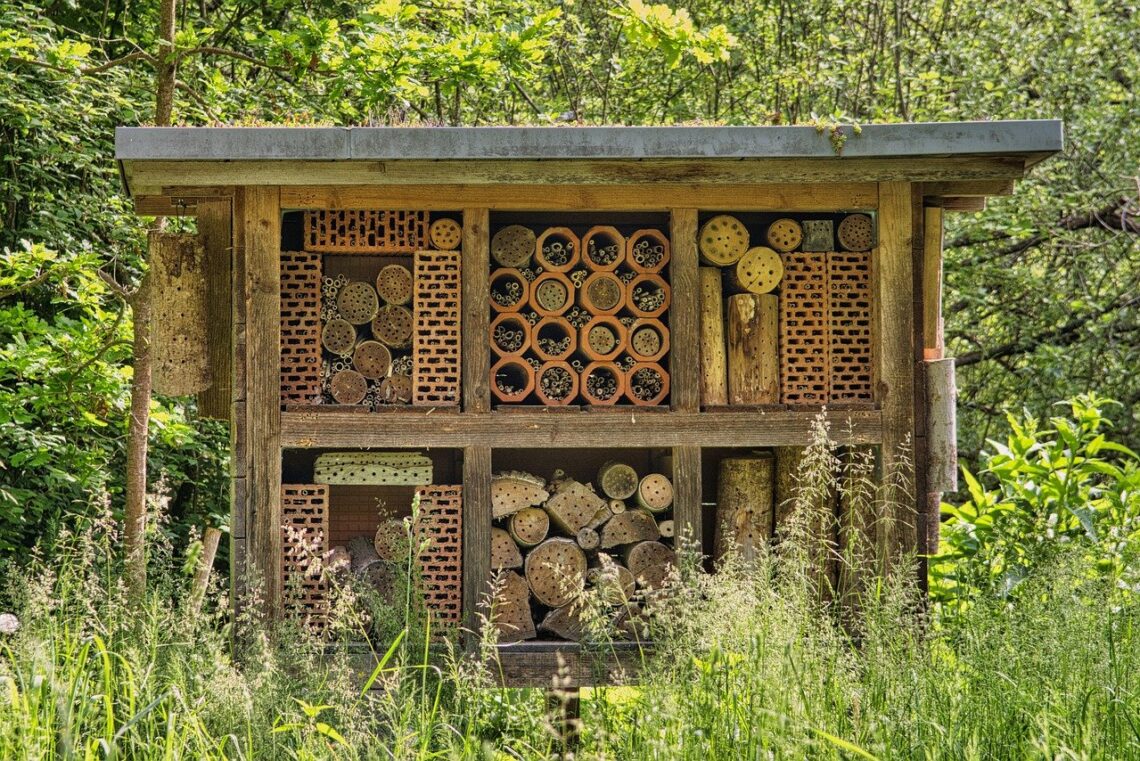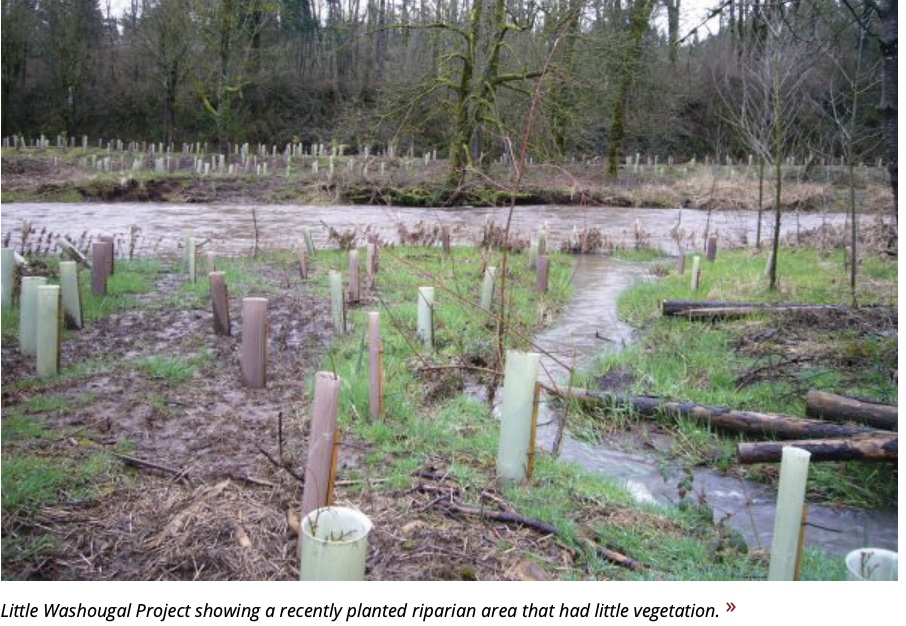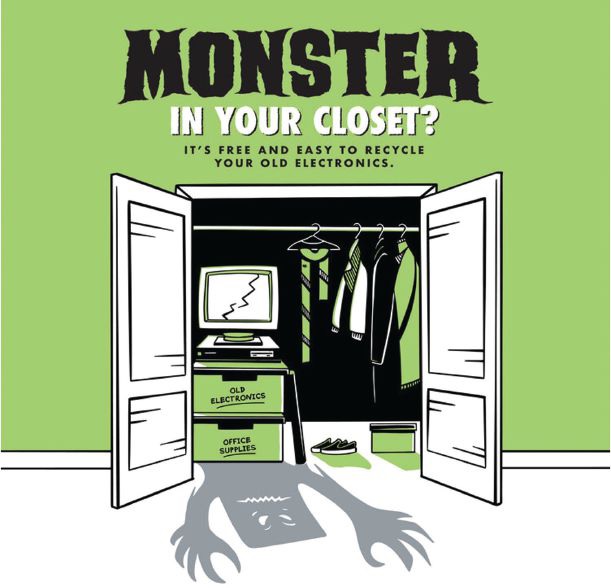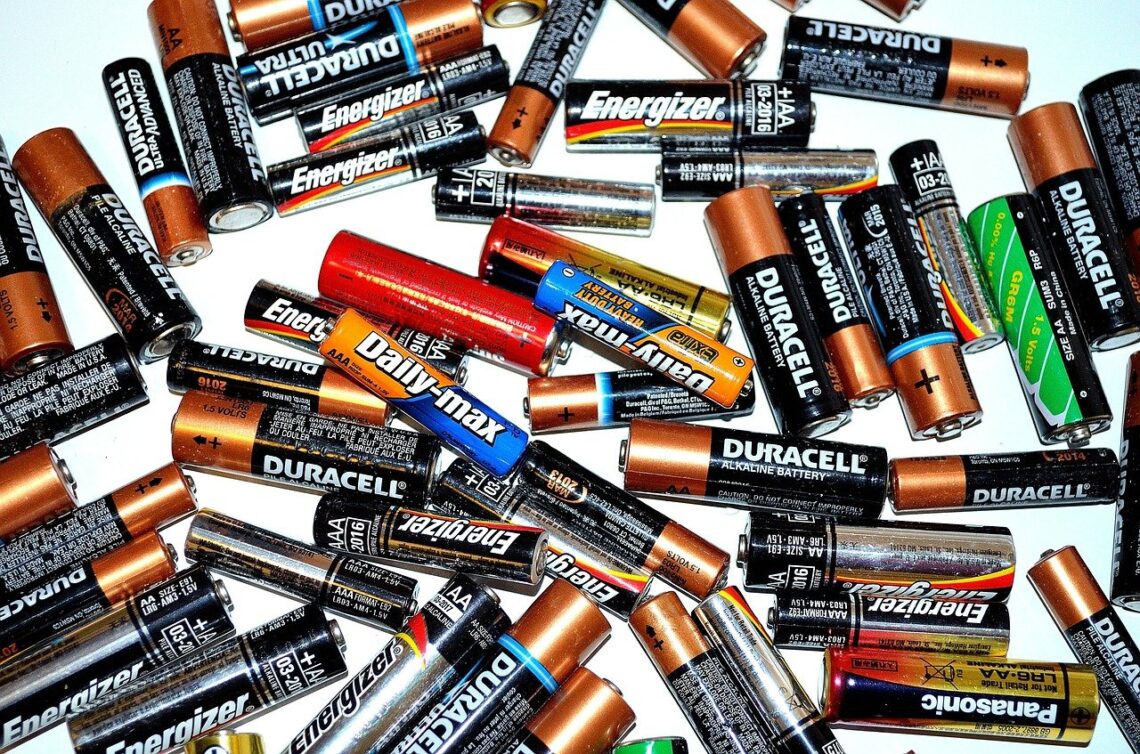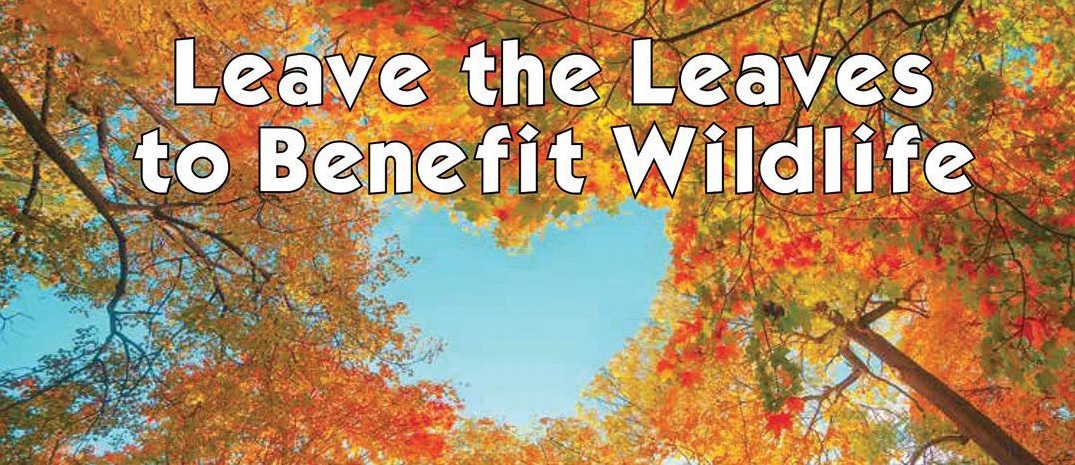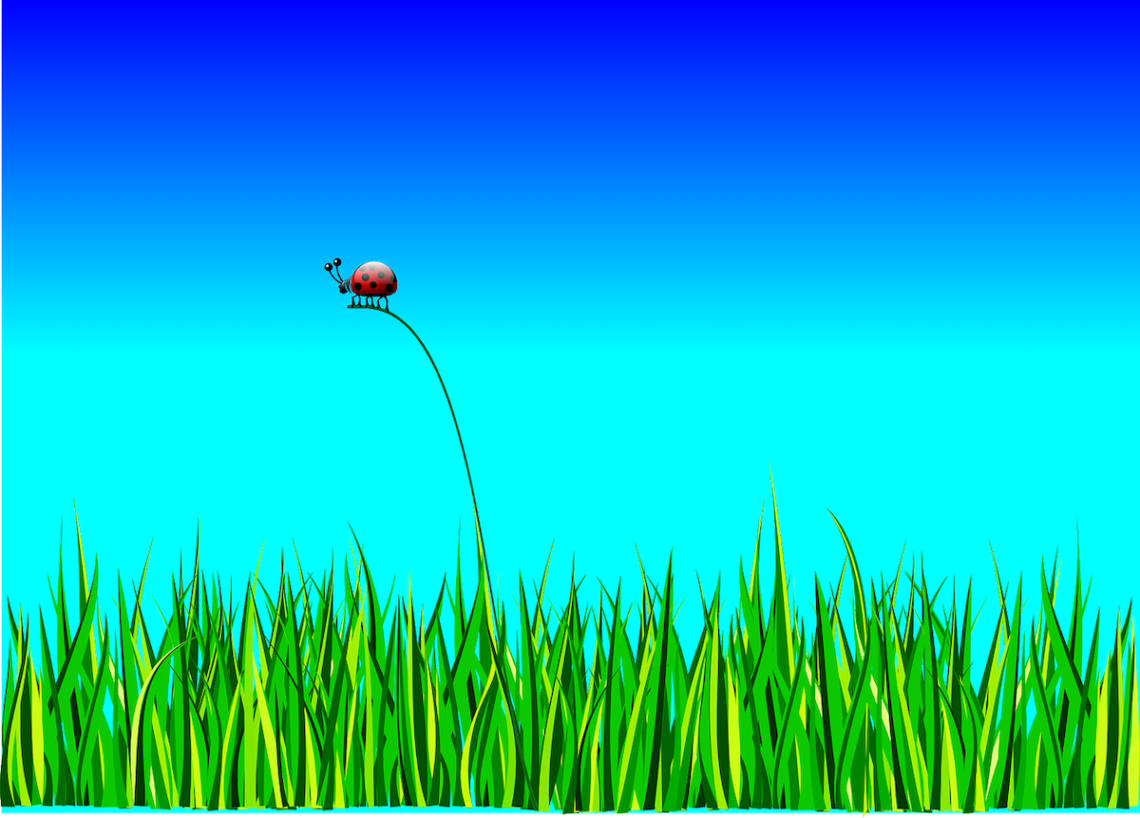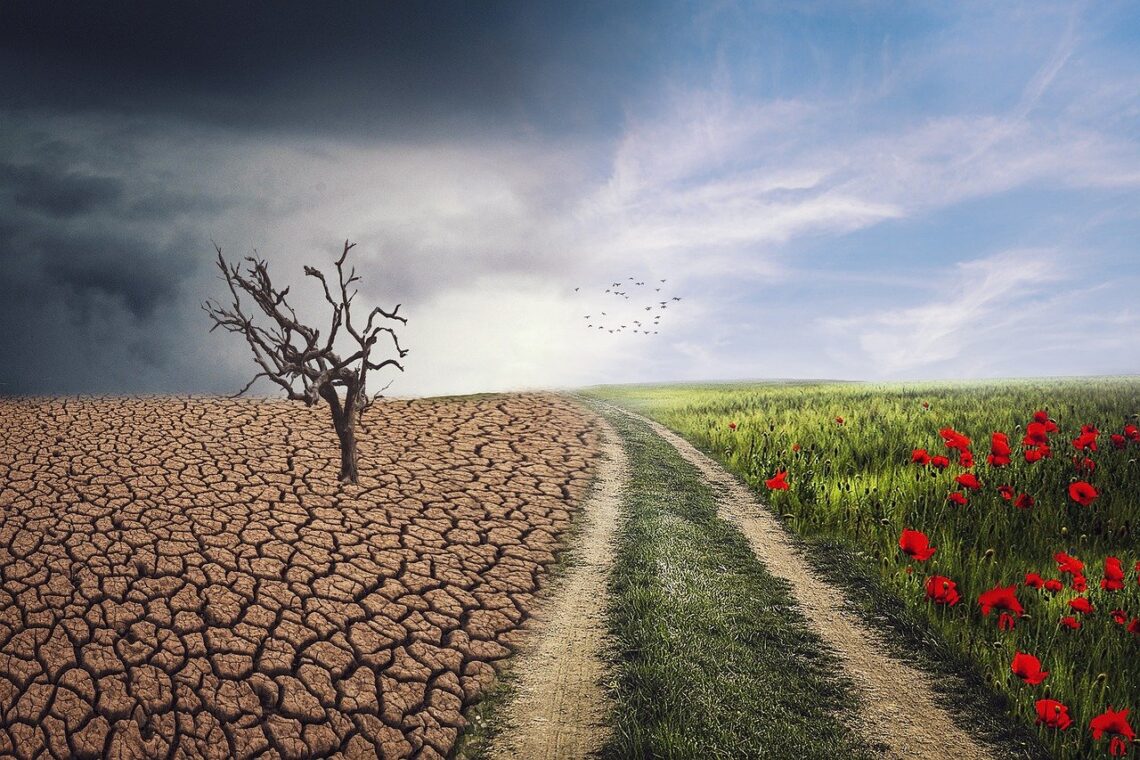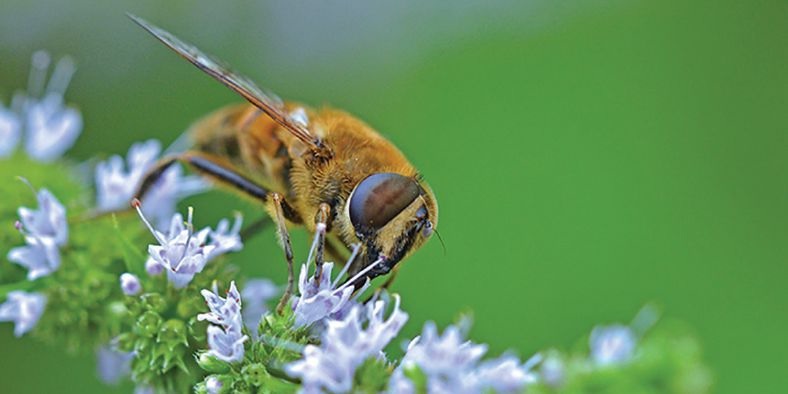Bugs, butterflies, and beetles – in our gardens and on our plants. Sometimes we are happy to see them, and often we are not. In either case, insects are necessary for our plants and consequently for us to survive. Some of them flit about pollinating, while others spend time eating and decomposing garden debris. Even the ones we dislike can be food for other beneficial insects, birds, and garden reptiles. Unfortunately, insects are generally in trouble, with almost 40% of insect species at risk of becoming extinct. So what can we do to help save and protect the insect ecosystem? One of the first and easiest projects we can undertake…
-
-
Let’s Protect Our Riparian Areas
The Pacific Northwest is known for its water—whether falling from the sky, melting from high peaks, or flowing towards the ocean—we have such a seeming abundance that it’s easy to take for granted. But, when was the last time you gave a second thought to the wonders of the hydrologic cycle or reflected on the unique role of the riparian plants that are specially adapted to live close to water? If you aren’t familiar with the term, “riparian” refers to the area of vegetation surrounding waterways (ponds, lakes, streams, rivers, etc.). The plant communities occurring at this land-water interface are incredibly biodiverse when healthy, and they provide many benefits to…
-
Is There a Monster in Your Closet?
Oregon E-Cycles: In Oregon, it’s free and easy to safely recycle TVs, computers, printers, monitors, and tablets through a no-cost statewide program known as Oregon E-Cycles After more than a year plus of COVID-19 quarantine, are you feeling a little cramped? Feeling like there’s too much stuff and not enough space? If your excess stuff includes electronics that you no longer use, you’re in good company. Over two-thirds of households in Oregon report that they have old, unused electronics taking up space in their home. And many share the concern that they want to dispose of them safely, to keep our state free from the hazardous materials they may contain,…
-
Recycling Batteries
KEEPING CHEMICALS OUT OF LANDFILLS TO SAVE THE EARTH Did you know that Americans use and discard millions of single-use and rechargeable batteries each year? Our increasingly large taste for lightweight power tools, “smart” devices, and electronics has caused an explosion of these metal-containing entities. Unfortunately, some of the chemicals they contain are harmful to the environment, including mercury, lead, cadmium, nickel, and silver. Others contain cobalt, lithium, and graphite—which are difficult to obtain from the earth and may become unavailable before the end of this century. Single-use batteries include: • The old tried and true alkaline and zinc-carbon (tubular and rectangular) batteries.• The newer button-cell or coin batteries.• The…
-
Buy Land and Plant
An Adventure in Reforesting A decade or so ago, I came across an article in the local paper about a retired school teacher who owned some land a couple of hours east of my city of Portland, Oregon, and spent his golden years planting trees. He had planted 10,000 trees up to that point, aiming to reforest a semidry area of land east of the Cascade mountains, where ponderosa pines flourished before the arrival of Europeans and had been mostly clearcut to create pasture. Something about the article resonated and stuck with me to this day. It was powerful to see an individual intentionally rewilding an area, giving it back…
-
Keeping Up With Electric Vehicles
As more car companies get on the electric vehicle (EV) bandwagon, the number of makes and models available just keeps growing, making it hard for consumers to keep up with them all. Fortunately, there is help. The US Department of Energy maintains a website with basic information on all vehicles sold in the US from 1984 to the present. To zero in on just EVs, it takes some time to thread your way through the various search options. But, the results show 287 EVs from the newest 2022s back to the 1998 Chevrolet Spark and Honda EV Plus. So, no matter if you’re looking to buy a new or used…
-
Leave the Leaves
It is fall again, and we have harvested all of our garden produce and are making sure our outside faucets are protected against winter’s freeze. The leaves are changing color and tumbling from the trees—and that means fall cleanup in the yard and garden. For many people fall cleanup means cutting all the seed heads and stems off the flowers and raking up all of the leaves. A tidy garden and yard are what many people strive to achieve. Everything clipped back, leaves raked and removed, messy piles of branches put in the green bin for pick up. This tidiness may look nice to us, but it is not good…
-
Picking Peas
Where Have all the Bugs Gone? Why are insects important? “When I was a kid….” No, I’m not going to say that I had to walk many miles to school in the snow. However, I will say that I remember that on summer evenings we would go for rides in the countryside, all of us in the family car, the windshield of which would be covered by smashed bugs. Loads and loads of smashed bugs. Ask any older person – they will remember that. I realized a few years ago that the bug-spattered windshields no longer happen. I will admit that it’s kind of nice not to have to soak…
-
A Word to the Wise
The recently released draft report from the Intergovernmental Panel on Climate Change (IPCC) paints a grim picture of planet Earth in the days ahead. The main point is that humans have waited so long to curb emissions that a hotter future is essentially locked in, as are more droughts, more forest fires, more crippling heat waves, more sea-level rise, and more floods. Moreover, the greenhouse gases that we have already pumped into the atmosphere will stay there a long time, inflicting misery for years to come. Continuing to pour greenhouse gasses into the atmosphere will create a domino effect of changes that will have severe consequences for humanity. The report’s…
-
Save Our Pollinators
Convert Your Backyard to a Bee Lawn Dear EarthTalk: What is a “pollinator lawn” and how can I make one in my backyard? —Jane W., Westbrook, CT Bees and other pollinators are essential for growing a great deal of nature’s finest foods. These include coffee, chocolate, beans, many fruits including apples, avocados, blueberries, cherries, and peaches, nuts like almonds and cashews, and vegetables such as cauliflower, broccoli, and Brussel’s sprouts, just to name a few. More than 100 U.S.-grown crops rely on pollinators. Small birds and animals also depend on a variety of pollinated wild fruits and seeds to survive. Unfortunately, the populations of bees and other pollinators, including hummingbirds, butterflies,…

